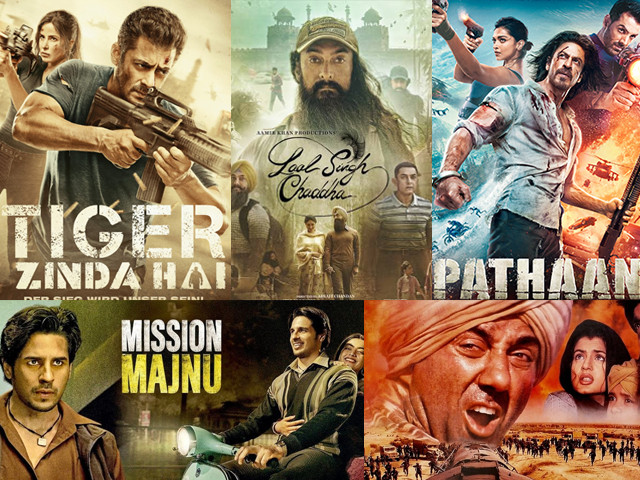by ASADULLAH RAISANI

The worsening condition of Pakistani cinema has given an edge to Indian soft power in the form of “patriotic” movies.
The current era is an era of soft power. The number of social media users and those who love watching movies and web series is far greater than those who genuinely read books and prefer books over the former for information. Many people rely on X, formerly Twitter, rather than newspapers for daily news for multiple reasons. Cinema is one of the aspects of soft power that Pakistan miserably lacks vis-a-vis its arch-rival India. This article analyses only this aspect, discussing how India actively uses its cinema to portray Pakistan as an evil state and the nation as the land of terrorists and recommends a future course of action.
As per the most recent data, the number of films released in India annually is 2,000, the highest in the world. Indian movies sell 3.6 billion tickets worldwide, nine times the number sold by Hollywood. The highest-grossing Indian film is “Baahubali 2: The Conclusion,” which earned over $260 million globally. The Indian film industry is estimated to produce 27,000 jobs every year, the total number of people directly/ indirectly depending on the industry for their livelihoods is over a million. The films made in India are exported to some 90 countries globally, contributing two per cent to the country’s Gross Domestic Product (GDP). The total revenue of the Indian Film Industry in 2020 was INR183 billion.
In contrast, the number of movies produced in Pakistan yearly is not even 20. No proper industry record is available online to get any idea of the status of this sector in the country. Only eight movies were produced in the country in 2019. These movies have such low budgets and lack substance that hardly any of them have the fortune to be exported abroad or dubbed in any language other than Urdu. Unlike Indian Cinema, there are case studies of movie producers in the country who were compelled to sell their properties to survive. Thanks to the changing trend on private news channels that have started offering jobs and some amount to artists who are often part of the shows aired between 11:00 to 11:55 pm.
This continuous worsening condition of Pakistani cinema has given a marginal edge to Indian soft power, which does not miss any chance to defame Pakistan and its nationals. Even in comedy movies that have no political theme, certain Indian filmmakers leave no opportunity to taunt the nation and use sarcastic, even insulting, tones and dialogues against Pakistan. For instance, “Guest in London” is a sequel to a comedy movie in which, in one scene, Paresh Rawal, a member of Modi’s BJP and a seasoned actor, taunts a neighbour by asking if he is a Pakistani as he tries to enter Rawal’s relative’s house by jumping a wall, implying that Pakistanis have this immoral conduct of spying and intruding. While playing such roles, a learned politician like Rawal should consider that Kulbhushan Yadav was not on a picnic in Pakistan, and the fantastic tea served to Abhinandan tells a different story.
Express Tribune for more
